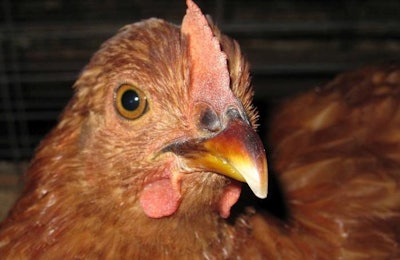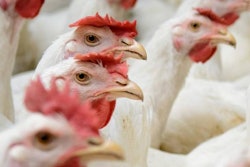
In the last week, new outbreaks of highly pathogenic avian influenza (HPAI) have been reported in poultry in Italy and Russia, while the infection has returned to Bulgaria, and wild birds have tested positive for the virus in Germany and Cyprus. South Africa’s government is seeking solutions to its HPAI situation, and a Chinese village broiler flock has been lost to the disease.
European avian flu situation
Italy’s animal health agency has reported three new outbreaks of HPAI linked to the H5N8 virus to the World Organisation for Animal Health (OIE) in the last week, bringing the country’s total number of outbreaks this year to 59. All the latest cases were in the Lombardy region, and included around 16,000 commercial ducks in Brescia province, as well as a 152-hen layer flock in Milan and a small mixed backyard flock in Bergamo.
After an absence of six months, HPAI appears to have returned to Bulgaria’s poultry sector. An H5 variant of the virus was detected at two locations in mid-October, leading to the loss of a flock of around 10,000 poultry in the region of Dobrich in the north-east of the country, and just days later to a further 148 birds in the central-southern province of Haskovo.
The same virus has been detected intermittently in Russian poultry since December of last year, and the agriculture ministry informed OIE last week about a new outbreak in a flock of almost 2,000 village birds in the Rostov region.
HPAI virus H5N8 has also recently been detected in wild birds in Germany and the Mediterranean island of Cyprus, adding to concerns about the possible return of the disease to Europe with migrating bird populations. A wild duck found dead in the German state of Lower Saxony tested positive for the virus in mid-October, and the Cypriot agriculture ministry reported to the OIE that a buzzard found dead in the far south-east of the island in September was also carrying the virus.
After a three-month period without the detection of HPAI virus, the French agriculture ministry declared the country free of the disease last week. Numerous outbreaks linked to the H5N8 virus occurred between the end of 2016 and June of this year. The minister, Stéphane Travert, welcomed the latest development, and said Japan was the first market to announce it was reopening to French poultry products.
Travert is also reported to be close to opening a EUR20-million (US$23-million) compensation scheme to help farmers whose production was lost due to H5N1 HPAI outbreaks in 2015, and launching an information campaign on biosecurity measures to prevent the return of the disease to the country’s poultry sector.
Africa: South African government seeks solutions to HPAI
With the aim to protect consumers and support the country’s poultry producers, the South African government news agency reports the agriculture department has been in discussion with key stakeholders. To date, the H5N8 variant of the HPAI virus has been confirmed at 92 locations.
Among the control measures under discussion is a vaccination strategy. This would likely reduce the effects of the disease in the short term but could impact exports in the long term so an exit strategy is being considered to withdraw vaccination when it is no longer needed to protect poultry flocks. Guidelines are also being developed to compensate farmers whose healthy flocks and eggs are destroyed as part of a disease eradication scheme.
To address current shortages in the country, the department is also reported to be in discussion with the industry on the possible future importation of fertile broiler hatching eggs.
In West Africa, the veterinary authority in Togo has informed the OIE that a previous HPAI event has been resolved. In June, a commercial layer farm tested positive for the H5N1 HPAI virus, but there have been no further cases since that time.
Asia: China and Vietnam declare freedom from avian influenza
After a single outbreak of HPAI linked to the H5N6 virus variant in September, Vietnam’s veterinary authority has informed the OIE that the situation has been “resolved.”
A similar declaration has been made by the agriculture ministry in China, while reporting to the OIE that the virus was detected in a flock of more than 45,000 village broilers in Anhui province in the second week of October. More than 15,000 birds died in that outbreak, and the rest were destroyed. A previous linked outbreak was in domestic quails in Guizhou province in August.
Caribbean: Low-pathogenic avian influenza (LPAI) detected in Dominican Republic
For the first time since 2009, the H5N2 LPAI virus has been detected in the Dominican Republic, according to the country’s agriculture ministry report to the OIE. Abnormal mortality and egg drop were observed in a flock of almost 49,000 laying hens kept in eight units in the province of Espaillat. Almost 2,000 of the birds died, and the rest were scheduled for humane destruction, along with the farm’s eggs. Intensive surveillance for the virus will be carried out in the area for at least the next three months.

















